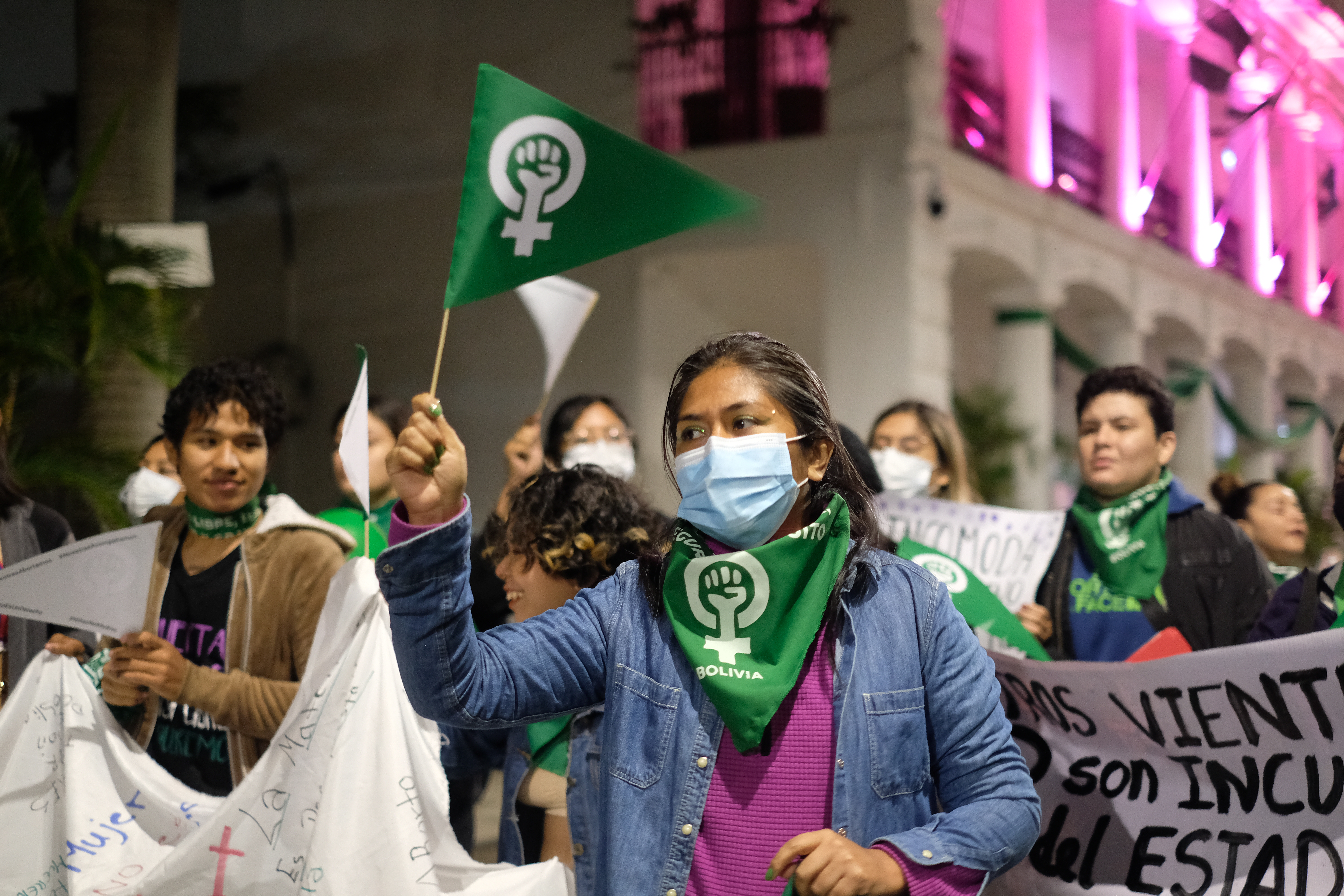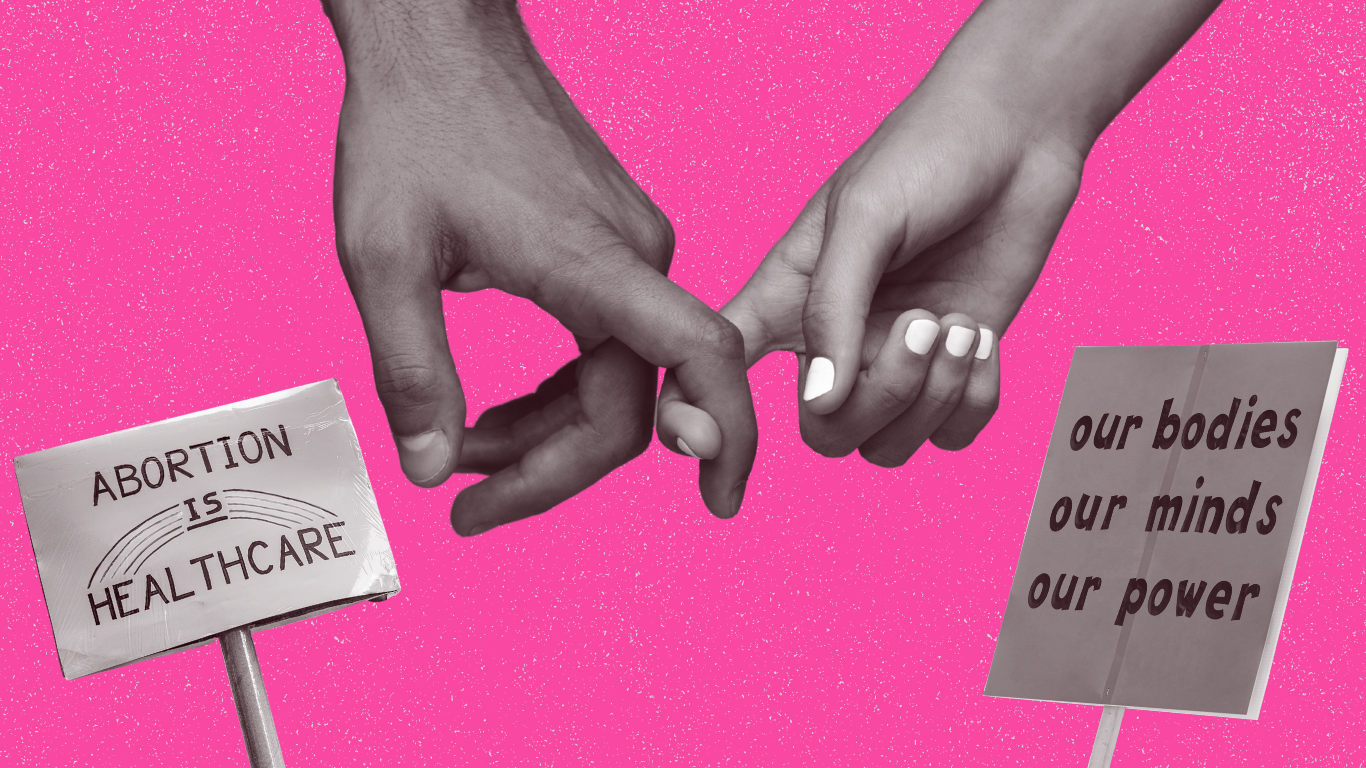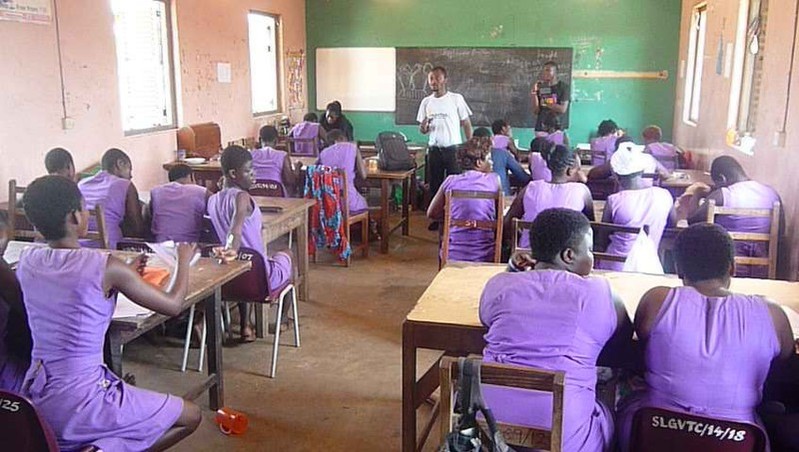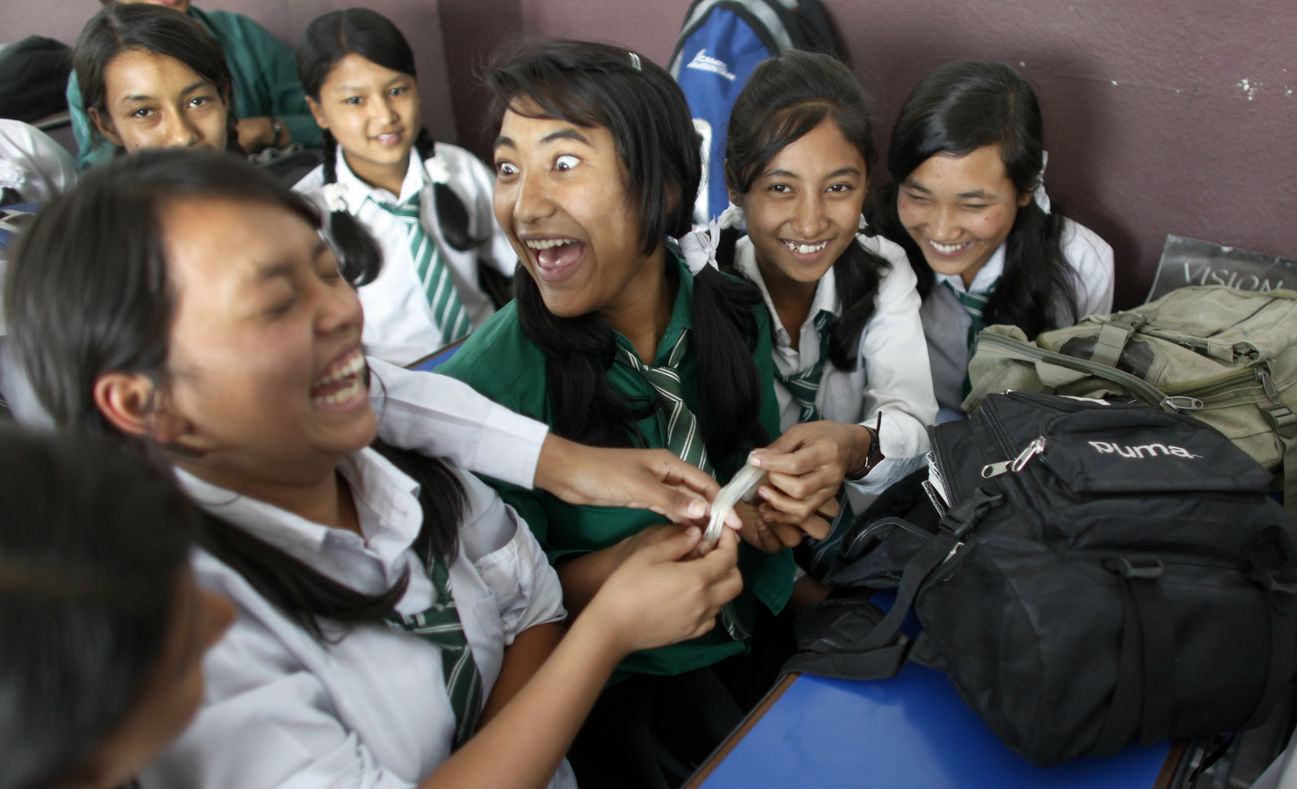
Laura Hurley is the Safe Abortion Action Fund (SAAF) Programme Advisor and Communications Lead.
Articles by Laura Hurley

The global abortion rights movement is unstoppable
Restrictions to safe, legal abortion care are in place all over the world. A handful of countries ban the procedure in every circumstance, but nearly all place limits on who can have an abortion and when. Abortion is often criminalised, and nearly always stigmatised. Despite all this, abortions still happen. In fact, abortion rates in countries where abortion is heavily restricted are similar to those where it is mostly legal. Every year, millions of people are able to circumnavigate oppressive legal systems and practical obstacles to end their pregnancies by choice. They are able to do this because of abortion rights activists. Activists are succeeding in changing laws, as well as hearts and minds News headlines are often dominated with stories about the devastating impact of abortion bans in the US. But the global picture is more positive. According to the Center for Reproductive Rights, more than 60 countries have liberalised their abortion laws in the past 30 years. Only four (including the US) have regressed.

Abortion, sex and pleasure
Abortions happen all around the world, every day. In fact, 61% of all unintended pregnancies end in abortion so, this is a common experience affecting many people in our lives. Abortion is discussed in the media as a political issue, but we hear less from people who have actually had abortions. And even more rare is a discussion of how abortion is linked to sexuality and desire. For example, how does a lack of access to safe abortion options affect a person’s sexual freedoms? How does having an abortion impact someone’s relationship to their own sexuality and sexual pleasure? We seem to forget that abortion is intrinsically linked to sex. I’ve worked in the global ‘sexual and reproductive health and rights’ sector for some years now, and it’s striking to me how often issues like pregnancy and HIV get talked about as if they have zero connection to real people’s sex lives. Discussions about ‘unmet need for contraception’ and ‘pregnancy outcomes’ seem divorced from the reality that this all leads back to actual sexual activity. And even more rare is an acknowledgement that a key driver for sexual activity is pleasure! No surprise, the anti-abortion movement is against sexual pleasure and bodily autonomy. The global anti-abortion movement has spent millions of dollars trying to persuade us (and the politicians who make the laws) that abortion is morally wrong, dangerous, and the sign of a society which has lost its way. Feminist scholars have argued that for opponents of abortion, “abortion is problematic because it represents non-reproductive sexuality, including sexuality for the purposes of pleasure.” When people object to safe, legal abortion care being available, they often seem to be objecting to the right to enjoy sex free from ‘consequences'. Certainly, if you read the comments under an article on abortion you will usually see something along the lines of “well she should have kept her legs shut.” Unplanned pregnancy, and in turn, abortion, is seen as a punishment for having sex in the first place. In a powerful essay about her abortions, Egyptian feminist Mona Eltahawy speaks about the stigma and fear which made her keep them a secret for so long, and how important it felt to break through this: “I am glad I had my abortions. They gave me the freedom to live the life I have chosen...I am from a country with the greatest number of women and girls in the world whose genitals have been cut in the name of controlling female sexuality. And so, f---ing is personal and political and its consequences especially so.” When we speak about abortion, we can’t ignore sex. And when we speak about sex, we can’t ignore pleasure. Of course, not all abortions occur because of consensual, or even pleasurable sex. Around the world, women and trans and non-binary people are subjected to sexual violence, which can result in pregnancy. Risk impacts our ability to enjoy sex. Fear of sexual violence, sexually transmitted infections, but also unwanted pregnancies can loom large. For those who live somewhere where abortion is not safely available, affordable, or comes with the threat of imprisonment, it’s very likely that a consideration of these risks could impact and limit their sex life – the partners they choose and the activities they engage in. What would our sexual lives look like if we achieved reproductive justice? Where lack of access to contraception and safe abortion, as well as parenting support, does not curtail the possibilities of our sexual freedoms? How can we work towards a world where sex is not just consensual but pleasurable and fulfilling for all involved? What would it look like to reimagine abortion care, and the community support that goes with it, as a site of potential pleasure? Of course, abortion itself is unlikely to be ‘pleasurable’. This is a medical intervention which can cause physical pain, and for some, complicated emotional responses tied to their desire for parenthood, their relationships, and so on. But abortion can be a positive choice for many. A way to centre their own needs and desires and act from a position of love and care for their families and partners. The Safe Abortion Action Fund (SAAF) grantee partner Fondo Maria recently celebrated 13 years of supporting people in Mexico to access safe abortions. In this blogpost they point out the potential for abortion to be ‘the reaffirmation of (someone’s) decisions and plans. The possibility of saying "I am satisfied with my life and I don't want it to change". There is power in claiming our right to live happy and fulfilling lives. To claiming sex which is not just free from risk or pain, but which is fun, pleasurable, exciting and expansive. We have a right to sexual freedom and bodily autonomy, and access to free, safe, legal, non-judgmental abortion care is an essential part of this. SAAF has recently endorsed the ‘Pleasure Principles’ as we believe work on abortion should be done with a sex-positive and pleasure focused lens. Find out more at The Pleasure Project.

What are young people around the world learning about abortion?
A recent Guttmacher Institute study of 15-17 year olds in Kenya1 shows that, shockingly, only 2% of students interviewed reported receiving fully comprehensive sexuality education. Almost all students (93%) considered sexuality education to be useful in their personal lives, and indeed a quarter of those interviewed were already sexually active. Despite this, the reality is that comprehensive, rights-based education is simply not being provided – with teachers being under-trained and often misinformed, and both teachers and students reporting embarrassment around broaching the subject of sexuality. One topic which is often left out of education programmes altogether, due to this discomfiture and social stigma, is abortion. Where Kenyan teachers did address the subject, “two thirds strongly emphasized that abortion is immoral”. A similar tendency was found in UNESCO’s review of sexuality education programmes in East and Southern Africa2; where the topic of abortion was either neglected, or was taught in ways deemed to be ‘inappropriate’. Information about abortion was often found to be inaccurate and/or judgemental – for example in Uganda, “Value statements (e.g. ‘abortion is murder’ and ‘masturbation is deviant’) are presented as if they are factual rather than religious perspectives.” The lack of practical information on how to avoid unwanted pregnancy, and on how to access safe abortion, along with the shaming of those who seek abortion is particularly worrying in a region where unsafe abortion is rife. Approximately 1.6 million women in Africa are treated annually for complications resulting from unsafe abortion3 – often due to lack of education and information on safe methods. Reports from the UK and Ireland also show that young people are being given false and stigmatising information about abortion – and a student in Canada recently reported a lesson in which an anti-abortion speaker compared abortion to the Holocaust. Noting that abortion is often left out of sexuality education programmes completely, or covered in ways which misinform, confuse or upset young people, IPPF has created a comprehensive resource to help educators tackle the subject Because we know that a lack of information about contraception and abortion negatively affects young people’s health, we think it’s important that even ‘sensitive’ subjects like this are covered openly and accurately. Only then can young people make informed decisions. Subscribe to IPPF's newsletter! References: 1 https://www.guttmacher.org/fact-sheet/sexuality-education-kenya 2 http://unesdoc.unesco.org/images/0022/002211/221121e.pdf 3 https://www.guttmacher.org/fact-sheet/facts-abortion-africa

Keeping the ‘sex’ in Comprehensive Sexuality Education
Back when I used to deliver sex education workshops in schools, I always made time for anonymous questions at the end of a session. This gave students the chance to write down any questions which weren’t answered in the workshop, and I would try to respond to each one as honestly and accurately as possible. A question I had more than once was some variation on “why do people have sex?” What a great question! And what a difficult question to answer in only a few minutes! There are SO many reasons people have sex – relating to love and intimacy, but also boredom, peer pressure, to earn money or to feel physical pleasure, the list goes on and on! Asking young people themselves to think about the reasons people might have sex (and choose not to have sex) can be a useful way to start discussing important issues like consent and communication, and to engage positively with sexual health and wellbeing. For many of us, sex education was limited to confusing textbook diagrams of ovaries and testes, with the general message that ‘sex’ leads to pregnancy and is generally something to avoid (until you’re married). But this limited picture of sex as a ‘baby-making activity’ doesn’t match up to real life. In fact, most of the sexual acts taking place around the world are not intended to end in pregnancy – first of all, not everybody is having ‘penis in vagina sex’ and many of those who do are using contraceptive methods to try to prevent pregnancy (or would like to, but have an ‘unmet need’). By framing sex only as vaginal intercourse, and by presenting it as something which leads only to unwanted pregnancy and infections, we do young people a disservice. We ignore diversities of pleasure, gender, sexual orientation, and crucially, in an educational environment, we are going to lose young people’s interest and engagement. Young people around the world tell us time and time again that sexuality education is often the one place they can get reliable and accurate information about sex – many do not want to or are not able to speak to parents, and as we know, searching for information about sex online may not always lead to evidence-based and non-stigmatising sources! A recent survey of over 1000 young women in Australia showed that the majority had not learnt anything from their sex education classes that had helped them when dealing with sex and respectful relationships, 90% learnt nothing about LGBT sexuality and relationships and 74% did not learn about pleasure. We clearly still have a way to go to deliver sexuality education which is fit for young people’s needs and realities. Today, IPPF launches two new, exciting publications, one which provides the rationale for ensuring comprehensive sexuality education (CSE) does not neglect positive discussions of sexuality, and the other which provides tips on how to do this in practice. Young people have a right to good quality, relevant education about their sexual and reproductive health and wellbeing. As the World Health Organization makes clear, being ‘sexually healthy’ isn’t just about being free from sexually transmitted infections or other physical dysfunction but also “the possibility of having pleasurable and safe sexual experiences, free of coercion, discrimination and violence”. To truly engage young people with issues such as gender and power, relationships, consent and condom use, we can’t ignore sex and sexuality. The ‘sex-positive’ approach put forward in these two guidance documents does not ignore potentially negative aspects of sex, and the very real problems of sexual violence and potential health risks young people face, but rather opens up an honest discussion about what ‘good’ and ‘bad’ sexual experiences look like. Young people need the confidence and self-efficacy not just to say no to sexual activity they don’t want, but to say yes to sexual activity they do want, when they are ready. We hope that these resources will spark wider conversations about what ‘sex-positive’ CSE looks like in different contexts, and how CSE can help young people to think critically about gendered norms about sexuality and empower them to engage in happy, healthy relationships and to have fulfilling and consensual sexual experiences.









